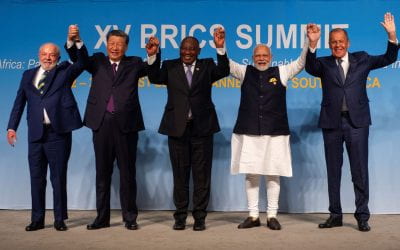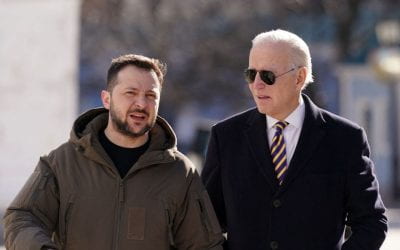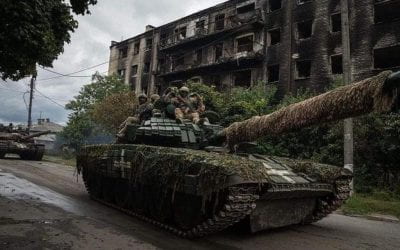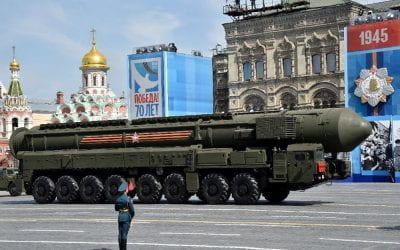Volume – Number Author Abstract: Keywords: About the Author:
Grasping at Laws: Climate Litigation in International Courts a Step Toward Justice for Small Island Developing States?
Isolated in the South Pacific Ocean, the groups of low-lying islands that constitute the Republic of Vanuatu are assailed by frequent storms and constantly threatened by the impacts of sea-level rise, marine pollution, and ocean warming. At risk of oceanic submersion...
The Freedom and Oppression of France’s Laïcité
In October 2018, during a WAFF Women's Club Championship match between Jordan's Shabab al Ordon Club and Arab Orthodox Club, an unnamed player for the Arab Orthodox Club was knocked during a play which shifted her hijab, an Islamic head covering for women, and exposed...
In the Wake of Wagner: The Dangers of Mercenary Groups
On Friday, June 24, 2023, Russia faced what appeared to be its largest threat since Vladimir Putin assumed control as president. After nearly a year and a half of fighting between Russia and Ukraine—much of which has been practically spent in a stalemate—thousands of...
BRICS Expansion: A Sign of Strength or Weakness?
On August 22, 2023, BRICS held their 15th annual summit in Johannesburg, South Africa. During the summit, President Cyril Ramaphosa invited Argentina, Egypt, Ethiopia, Iran, Saudi Arabia, and the United Arab Emirates to become full members of the organization. With...
The Nord Stream Sabotage: An Ever Shifting Narrative
On September 26, 2022, powerful explosions destroyed three out of the four Nord Stream pipelines, severing Germany from its main source of energy. [1] Jeffery Sachs, Columbia University Professor, classified the Nord Stream sabotage as an act of international...
WarGPT? Measuring the Potential Impact of AI on Global Military Affairs
From scoring in the 90th percentile on the multistate bar exam to creating keto-friendly recipes using only video footage of the inside of a developer’s refrigerator, Artificial intelligence (AI) software has grown exponentially more capable of mimicking human...
The 2023 Nigerian Presidential Election: Another Missed Opportunity for Nation-Building?
Anyone following the 2023 Nigerian presidential election closely would guess that the coverage and mobilization around the underdog candidate, Peter Obi, signified a turning point in Nigerian politics. But the election has come and gone, and with his loss, it appears...
America and Ukraine: Analyzing the Two Differing Interests on the Battlefield
Since the invasion of Ukraine in February 2022 by the Russian military, the United States has committed substantial resources to helping Ukraine resist the threat to their existence. Billions of dollars, millions of munitions rounds, thousands of artillery shells, and...
The Economic war Behind Russia’s Invasion of Ukraine
On February 24th, 2022, Vladimir Putin and the Russian military invaded Ukraine, causing an international response in all four categories used by governments to force results around the globe: diplomatic, intelligence, military, and economic. The most employed tactic...
Mutual Technological Destruction (MTD): Why the U.S. Should Avoid Taiwan Like Quicksand
To remind those that continue to doubt China’s resolve to achieve reunification with Taiwan, President Xi Jinping affirmed during his address to the 20th National Congress of the Chinese Communist Party that, “We will continue to strive for peaceful reunification with...
Russia’s Response to the Challenges of Urban Warfare in the Russo-Ukrainian War
Russia's Response to the Challenges of Urban Warfare in the Russo-Ukrainian War The Russo-Ukrainian War has resulted in high casualties on both sides in addition to producing a humanitarian catastrophe. Ukrainian civilians are experiencing the harsh realities of war...
Lights Out: How Formula One Enables Human Rights Violations in the Middle East
“It’s lights out and away we go!” proclaims Formula One commentator David Croft on race day as fans worldwide cheer on their favorite drivers. Formula One (F1) has been the premier global motorsport league for the last half-century, with over 2.6 million fans in...
Past, Present, Future: State Relations and Asylum Seekers at the Olympic Games
The Olympics instill a long-standing celebration of athletics, bringing states around the world together despite the political climate. The first modern Olympics took place in 1896 in Athens with thirty-four states participating in nine sports.[i] The Olympics have...
Wartime Media and the Russian Federation: Protecting National Interests through Indoctrination
Introduction In 2021 Russia ranked 150 out of 180 countries in the World Press Freedom Index. This annual ranking regressed from 149 to 150 following the arrests of journalists reporting on anti-government protests and the Russian government’s inability or...
Rising Tides, Sinking States: Climate Change and Implications for Statelessness
Climate change is one of the most pressing issues to date, impacting nearly every aspect of life. Climate change has influenced numerous national and international decisions regarding energy production, agriculture, and development. Though permanent effects of climate...
Could it Happen?: The Use of Weapons of Mass Destruction in Response to the Russo-Ukrainian War
On March 24th, President Biden announced that North Atlantic Treaty Organization (NATO) would be inclined to respond if Russia were to employ the use of chemical weapons in Ukraine. “We would respond…We would respond if [Putin] uses it…The nature of the response would...
The First Crypto War: Russia, Ukraine, and the role of Cryptocurrency
Cryptocurrency and blockchain technology has the potential to change the way the world utilizes money and financial assets, especially in times of war. The role of cryptocurrency in the Russian invasion of Ukraine is one of the first major examples of the impact of...



















